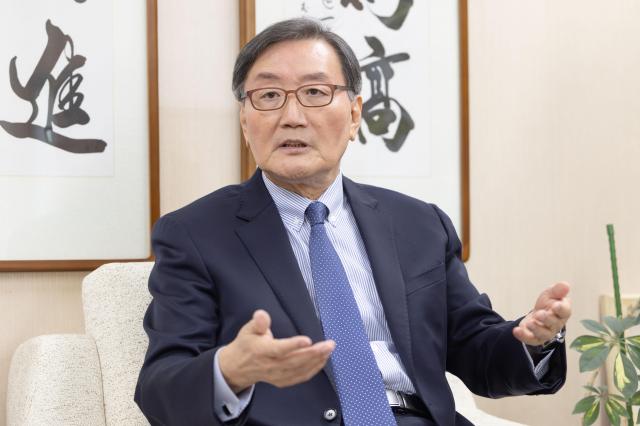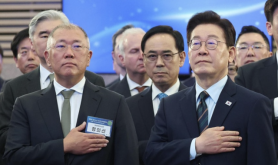
SEOUL, November 13 (AJP) - South Korea has a rare chance to escape years of sluggish growth if it can harness artificial intelligence as a new engine of productivity, according to Jeon Kwang-woo, chairman of the Institute for Global Economics and a former head of the Financial Services Commission.
In an interview with Aju Business Daily, Jeon said the country’s economy — long constrained by an aging population, weak investment, and slowing exports — could find renewed momentum in the global race for AI leadership.
“Artificial intelligence can be a catalyst for growth,” he said, adding that the challenge is to ensure that innovation “does not deepen inequality or social polarization.”
South Korea’s economy expanded 1.2 percent in the third quarter, beating expectations. The Bank of Korea now estimates that if growth in the final quarter remains above minus 0.1 percent, full-year expansion could reach roughly 1 percent. The International Monetary Fund recently raised its 2025 forecast for South Korea from 0.8 percent to 0.9 percent, while global investment banks see growth in the 1 percent range.
Even so, Jeon noted that South Korea continues to lag behind major economies, where growth averages 2 to 3 percent.
“Low growth has become structural,” he said. To address it, he called for policies that boost labor productivity, technological competitiveness, and corporate investment, supported by a more dynamic financial system.
Jeon pointed to recent developments in the AI industry as a promising sign. NVIDIA chief executive Jensen Huang’s plan to supply 260,000 GPUs to South Korea, he said, represents not only a technological opportunity but also a strategic hedge against U.S.–China tensions.
“We must expand infrastructure such as data centers and energy supply to take advantage of this AI momentum,” Jeon said.
South Korea’s government has pledged to make the country one of the world’s top three AI powers, but Jeon cautioned that fiscal prudence will be essential. “Spending must focus on areas with strong multiplier effects, such as AI infrastructure,” he said. “Excessive cash handouts could undermine financial stability.”
He also warned of potential labor market polarization as automation advances. “AI will reduce labor demand in some sectors,” he said. “The government and businesses should prepare through retraining programs and stronger safety nets for vulnerable groups.”
Despite concerns about a possible AI bubble, Jeon remains optimistic that the technology will continue to drive exports — especially in semiconductors — and lift South Korea’s growth to the upper 1 percent range next year. But he cautioned that policy uncertainty and geopolitical risks, including renewed U.S.–China tariff tensions, could still weigh on the outlook.
“AI is not a guarantee of growth,” he said. “It’s an opportunity — one we must seize carefully, with both innovation and inclusion in mind.”
* This article, published by Aju Business Daily, was translated by AI and edited by AJP.
Copyright ⓒ Aju Press All rights reserved.




